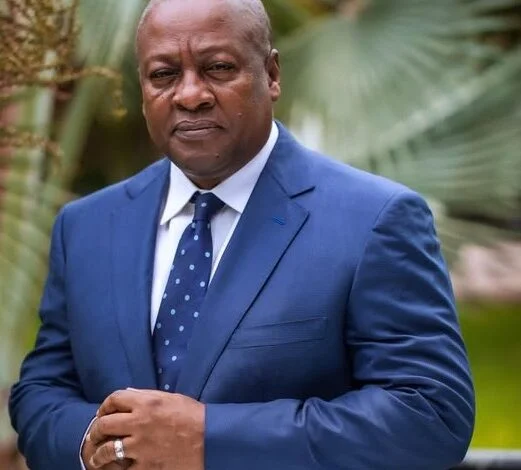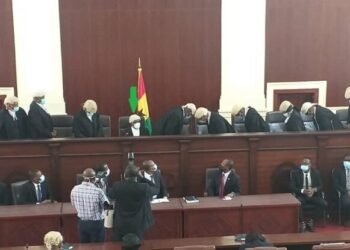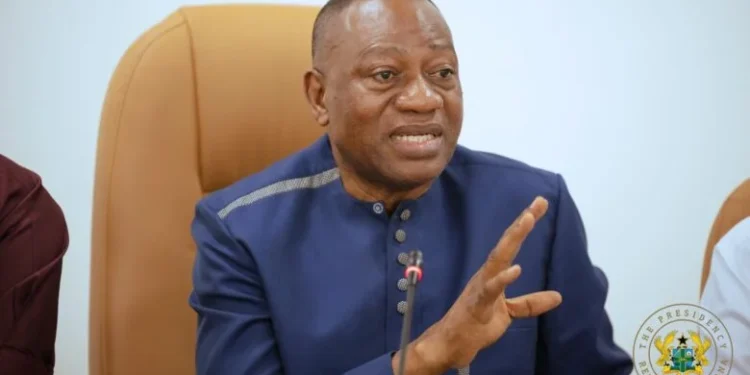Former CalBank Chief Executive Officer (CEO), Mr. Frank Adu Jnr, has advised President John Dramani Mahama to critically monitor the delivery and output of his appointees, warning that entrenched political patronage could hinder effective governance and derail national development efforts.
Mr. Adu Jnr, reflecting on the early months of the Mahama administration, remarked that while the President has enjoyed a relatively calm honeymoon period following the elections, the real challenge lies ahead.
“I think that President Mahama made promises, and the thing for him to do is to try and keep those promises. Luckily, we’ve had some stability, particularly in the currency – there’s been an appreciation”
Mr. Frank Adu Jnr, Former CalBank CEO
According to him, the current economic stability – particularly the cedi’s stabilization around 11 to 12 Ghana cedis to the dollar – provides a good opportunity for both the government and the people to plan and execute policies effectively.
“The difficulty is in keeping those promises, that is where you begin to have the challenge,” he said, warning that in Ghana’s political system, campaign promises often run ahead of feasible delivery. he explained.

The former banker urged the President to remain vigilant about how his team performs, highlighting that failure to deliver on electoral commitments could erode public trust and goodwill amidst economic and living challenges.
Addressing the issue of appointee effectiveness, Mr. Adu Jnr expressed concern about what he sees as an absence of accountability within public sector leadership, particularly among politically aligned CEOs and ministers.
“I have not seen or heard in the past probably 18 years, any minister of a sector or a president criticize or question an appointee for non-performance”
Mr. Frank Adu Jnr, Former CalBank CEO
He attributed this to entrenched political loyalty and cited the example of key parastatals like VRA or ECG, suggesting that CEOs appointed through political connections are rarely held accountable – even when they underperform.
“This political appointee was part of the whole campaign train of the president – yet the person is not performing,” he observed. According to him, the result is a systemic failure where sector ministers, also politically appointed, become incapable or unwilling to discipline or remove non-performing institutional heads.

Systemic Failure of Meritocracy
Mr. Adu Jnr described the situation as one in which political allegiance overrides meritocracy.
“Today, if someone here wants to be a minister, all he/she has to do is join one of the political parties and become a communicator,” he lamented. In his view, the louder a person is in political discourse, the higher their chances of appointment when they win power, regardless of that person’s actual competence.
He contended that this culture of noise over ability leads to systemic inefficiencies, further exacerbated by the absence of performance-based reviews or consequences.
“If you are not held to account for your deeds as a minister or as a political appointee, it means that you can underperform”
Mr. Frank Adu Jnr, Former CalBank CEO
He drew parallels to the previous Akufo-Addo administration, suggesting that many parastatals under the State Interests and Governance Authority (SIGA) failed to meet expectations, with only a few exceptions such as SIC showing financial responsibility.
In his concluding remarks, Mr. Adu Jnr offered a pointed recommendation to President Mahama.

“If you want the country to move forward, you must appoint people irrespective of their political inclination. And even if they are all NDC, make sure they are given the job on merit and not because they made the most noise whilst we were in opposition”
Mr. Frank Adu Jnr, Former CalBank CEO
The comments come as the Mahama administration approaches the critical one-year mark since its return to power, with heightened scrutiny over whether it can fulfill key reform promises, revive economic confidence, and restore institutional discipline.
Mr. Adu Jnr’s observations highlight ongoing concerns about governance culture in Ghana, and the deep entanglement of political reward systems within state appointments – a challenge successive administrations have struggled to overcome.
As calls for accountability mount, the focus will increasingly shift to whether President Mahama’s team can break the mold and deliver results that transcend partisan loyalty. Whether the President acts on this advice could shape the performance trajectory of his second tenure.
READ MORE: Ghana Gas Engages Industry Leaders to Boost Gas Supply























